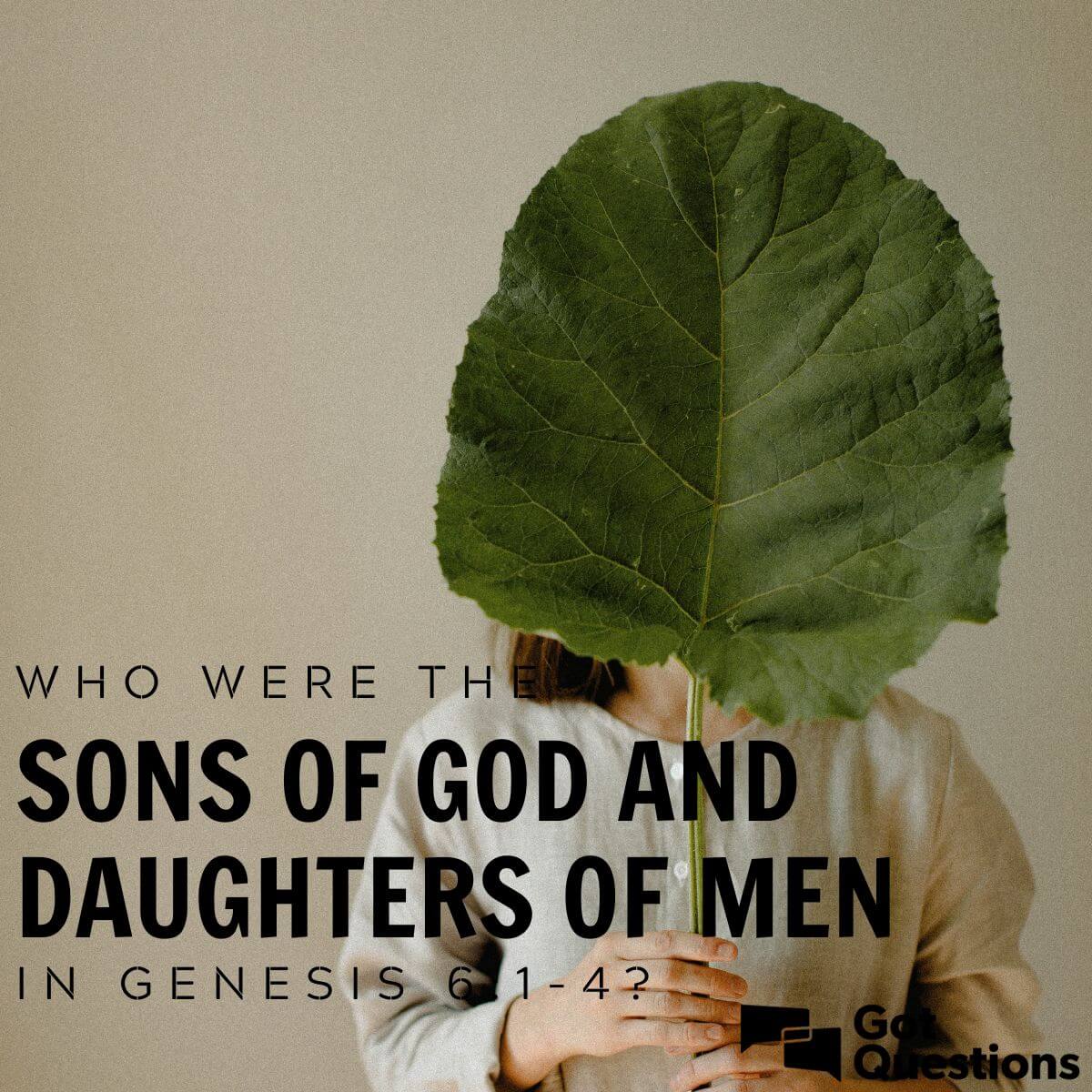First off, I don't mind minor edits to correct spelling or grammar, but please do not add your comments to the quoted text. One, I'm not going to read it, and two, it indicates you're not interested in responding to what I actually said, but rather what you want me to have said.
It's extremely dishonest.
Good.
Don't care.
Duh. My question was about whether you understood the difference between how the two passages were written, that being that the former is a quotation of what Adam literally said, and the latter is narrative (iow, NOT a quotation) about something that happened, not necessarily something that Adam said.
Not in Genesis 3:20, he didn't.
Which is exactly my point.
You're changing the text to fit your beliefs.
That's not good.
Genesis 3:20 is narrative, not quotation.
So she was the mother of the angels?
The mother of all other creatures, such as the beasts of the field, the birds of the air, the fish in the seas?
Do you not see the problem with that?
You're reading into the text something that isn't there.
There were no humans on earth prior to day 6.
The only two humans on earth after day 6 were Adam and Eve.
Aside from Adam and Eve, there were no other humans on the earth prior to Cain. Abel was her second-born.
Adam and Eve had other children after Cain as indicated by the text (Eve is the mother of all living), and of his sisters, one of them he took as his wife.
The last named (at least, as far as Scripture is concerned) person Adam and Eve had was Seth.
As per the above kgov link, there would not have been anywhere near enough time for Eve to have had any other children prior to the fall, and they were kicked out of the garden shortly after their fall, likely by the end of the day they fell.
Adam did not give any reasons for anything in Genesis 3:20.
Adam is not the one speaking in that verse.
Why is that so hard for you to understand?
I would much rather you make arguments instead of just mere claims.
It doesn't matter what that way of looking at it is if it contradicts scripture.
And it does.
No, not "of some sort."
He spoke, interacted with man through speech.
None of what God is recorded as saying was anything other than language.
"Word" is a very poor translation of the Greek word "LOGOS."
LOGOS means "logic (it's literally where we get the word logic from), reason."
It would be more accurate to translate John 1:1 as God being reason itself.
There is no such thing as "the human language."
Yes, Genesis 2:19 is the first time Moses recorded a human using language. But it's not the first time someone spoke.
As I pointed out, the first time someone spoke was in Genesis 1:3. "Let there be light."
Supra.
No, Genesis 2:4 onwards is not a new era, different than what was described in Genesis 1.
Chapter 1 was the overview. Chapter 2:4 onwards gets into the details of life in the garden.
Note what verse 5 says, that it is describing a time "before any plant of the field was in the earth and before any herb of the field had GROWN. . . . there was no man to till the ground".
It's describing the period after day 3 and before God created man on day 6.
Creation? No.
God created the elements on day 1, Genesis 1:1.
He made everything in the universe throughout days 2-6 using what He created on day 1.
Man was made from the dust of the ground, yes.
We don't know what Adam said.
All we know, per scripture, is that Adam called her Eve, not because Moses recorded his words, but because Moses recorded that he did so.
To assert that that was what Adam said is to add to scripture, and to go beyond what the text says.
Don't add to scripture.
Don't go beyond what the text says.
Are not the archangels Michael and Gabriel "living"?
What about all the other creatures God made? Are they living, too?
If Eve is the mother of all living, does that mean she is the mother of all creatures that are "living"?
Or perhaps, just maybe, it's not saying anything other than that Eve is the mother of all human beings, being referred to as such before having bore any human beings in her womb?
Correct.
The Hebrew phrase here is "men of name," the idea being that they were famous enough to have been known by their names for their deeds.
Yet, despite being "men of name," their names are not given...
Why is that?
The Bible doesn't say either way.

The problem is this:

"produce one flesh"?
What are you talking about?
The Bible doesn't say "produce one flesh."
It says that a man and a woman "become one flesh."
If you can't even get that much correct, how in the world do you expect to get anything else correct with your theology?
I believe they were only partially human, and likely incapable of a relationship with God, both reasons being why God had to destroy them.
Freaks? Indeed.
Abominations, at the very least.
Being the spawn of demons does.
I recommend reading the following links:
I'm willing to be convinced otherwise, but I believe that the reason pagan religions have so many gods that act like "men" is due to such "men of renown," their deeds being so legendary that they turned into myths. For example, the Greek gods Zeus, Poseidon, the Titans, etc, the Roman gods Jupiter, Mars, Venus, etc, and plenty of other deities of pagan religions, I'd argue most if not all were stories of the "men of renown" of Genesis 6, or even of the giants that came after the flood, the stories of which were passed down through the generations of humans by Noah's sons.
Again, I point to the fact that they were men of "name," yet their names are not given.
It's extremely dishonest.
No, I'm not confusing the two.
Good.
So glad you asked this question. It gives me a chance to share more about how I see Gen. 1,2,3.
Don't care.
We really have no clue how long they lived sinless in the Garden... it seems long enough to understand cleaving.
This is a totally different event from Gen. 2:21-23.
Duh. My question was about whether you understood the difference between how the two passages were written, that being that the former is a quotation of what Adam literally said, and the latter is narrative (iow, NOT a quotation) about something that happened, not necessarily something that Adam said.
Moses may have been recording history for us but he wrote what Adam said in the moments things happened.
Not in Genesis 3:20, he didn't.
Which is exactly my point.
You're changing the text to fit your beliefs.
That's not good.
Moses wasn't writing about his day, but the days of Adam, Woman, and the LORD.
Genesis 3:20 is narrative, not quotation.
A mother of whom?
I've concluded: She WAS the Mother of all those already/currently living.
So she was the mother of the angels?
The mother of all other creatures, such as the beasts of the field, the birds of the air, the fish in the seas?
Do you not see the problem with that?
These who would have had the right to be called human"sons of God.'
You're reading into the text something that isn't there.
There were no humans on earth prior to day 6.
The only two humans on earth after day 6 were Adam and Eve.
Aside from Adam and Eve, there were no other humans on the earth prior to Cain. Abel was her second-born.
Adam and Eve had other children after Cain as indicated by the text (Eve is the mother of all living), and of his sisters, one of them he took as his wife.
The last named (at least, as far as Scripture is concerned) person Adam and Eve had was Seth.
As per the above kgov link, there would not have been anywhere near enough time for Eve to have had any other children prior to the fall, and they were kicked out of the garden shortly after their fall, likely by the end of the day they fell.
No, Adam gave the reasons and Moses told about the events as they would have happened in the time frame of Adam's day.
Adam did not give any reasons for anything in Genesis 3:20.
Adam is not the one speaking in that verse.
Why is that so hard for you to understand?
Keep in mind I'm not trying to be argumentative ...
I would much rather you make arguments instead of just mere claims.
but I am trying to present a new way of looking at the sons of God and who they might have been in Noah's day.
It doesn't matter what that way of looking at it is if it contradicts scripture.
And it does.
Well, yes... God had a language of some sort.
No, not "of some sort."
He spoke, interacted with man through speech.
None of what God is recorded as saying was anything other than language.
In Fact, the WORD was God and was with God and God spoke things into existence.
"Word" is a very poor translation of the Greek word "LOGOS."
LOGOS means "logic (it's literally where we get the word logic from), reason."
It would be more accurate to translate John 1:1 as God being reason itself.
QUESTION: But does that rule out that humanity didn't?
The human language began with Gen. 2:19.
There is no such thing as "the human language."
Yes, Genesis 2:19 is the first time Moses recorded a human using language. But it's not the first time someone spoke.
As I pointed out, the first time someone spoke was in Genesis 1:3. "Let there be light."
Moses pointed out the exact time this began.
19And out of the ground the LORD God formed [versus created. These things were created in Gen.1but not manifested] every beast of the field, and every fowl of the air; and bought them unto Adam to see what he would call them: and whatsoever Adam called every living creature,that was the name thereof.
Supra.
I'm aware of what God the Spirit did in Genesis 1, but Gen. 2:4 begins what is called "the generation when..." This is a new time period/era ... when The LORD/YHWH began to work within creation in a hands-on face-to-face manner.
No, Genesis 2:4 onwards is not a new era, different than what was described in Genesis 1.
Chapter 1 was the overview. Chapter 2:4 onwards gets into the details of life in the garden.
Note what verse 5 says, that it is describing a time "before any plant of the field was in the earth and before any herb of the field had GROWN. . . . there was no man to till the ground".
It's describing the period after day 3 and before God created man on day 6.
He formed from the dust of the ground/the elements from which creation was formed,
Creation? No.
God created the elements on day 1, Genesis 1:1.
He made everything in the universe throughout days 2-6 using what He created on day 1.
all the bodily parts of a man's body.
Man was made from the dust of the ground, yes.
Well, I agree Moses did write that she WAS the mother.... and he wrote that because God revealed to him that this was Adam said.
We don't know what Adam said.
All we know, per scripture, is that Adam called her Eve, not because Moses recorded his words, but because Moses recorded that he did so.
To assert that that was what Adam said is to add to scripture, and to go beyond what the text says.
Don't add to scripture.
Don't go beyond what the text says.
I've NEVER suggested that.
Are not the archangels Michael and Gabriel "living"?
What about all the other creatures God made? Are they living, too?
If Eve is the mother of all living, does that mean she is the mother of all creatures that are "living"?
Or perhaps, just maybe, it's not saying anything other than that Eve is the mother of all human beings, being referred to as such before having bore any human beings in her womb?
Adam and Woman would have only produced men/sons ... and later daughters on earth.
Correct.
This is why the sons of God, in Noah's day, who had been born unto Adam and Woman in the Garden went down unto the daughters of born unto Adam and Eve on the present day earth produced only MEN OF RENOWN.
The Hebrew phrase here is "men of name," the idea being that they were famous enough to have been known by their names for their deeds.
Yet, despite being "men of name," their names are not given...
Why is that?
The "gods/angels" were not given this ability to reproduce with women.
The Bible doesn't say either way.

Can angels reproduce? | GotQuestions.org
Can angels reproduce? Can angels mate? Can angels produce offspring?
www.gotquestions.org
God gave the children of God, also known as sons of God[Ps 82:6], that command - to multiply and reproduce.
The problem is this:

Who were the sons of God and daughters of men in Genesis 6:1-4? | GotQuestions.org
Who were the sons of God and daughters of men in Genesis 6:1-4? Did the fallen angels mate with human female to produce the Nephilim?
www.gotquestions.org
Well, Adam and Woman did produce ONE FLESH. It was a boy, who would leave his mother and father and cleave to his wife and repeat the process Adam had witnessed and described.
"produce one flesh"?
What are you talking about?
The Bible doesn't say "produce one flesh."
It says that a man and a woman "become one flesh."
If you can't even get that much correct, how in the world do you expect to get anything else correct with your theology?
So, do you think these MEN of RENOWN were freaks?
I believe they were only partially human, and likely incapable of a relationship with God, both reasons being why God had to destroy them.
Freaks? Indeed.
Abominations, at the very least.
Does being a giant make one a super-natural freak?
Being the spawn of demons does.
I recommend reading the following links:
I don't assume that. Special and renown...probably.
I'm willing to be convinced otherwise, but I believe that the reason pagan religions have so many gods that act like "men" is due to such "men of renown," their deeds being so legendary that they turned into myths. For example, the Greek gods Zeus, Poseidon, the Titans, etc, the Roman gods Jupiter, Mars, Venus, etc, and plenty of other deities of pagan religions, I'd argue most if not all were stories of the "men of renown" of Genesis 6, or even of the giants that came after the flood, the stories of which were passed down through the generations of humans by Noah's sons.
Of course there had to be some cleaving ... and multiplying before some of them grew to become famous and perhaps leaders in their own rights.
Again, I point to the fact that they were men of "name," yet their names are not given.


